Trump voters think men face more discrimination than LGBT+ people
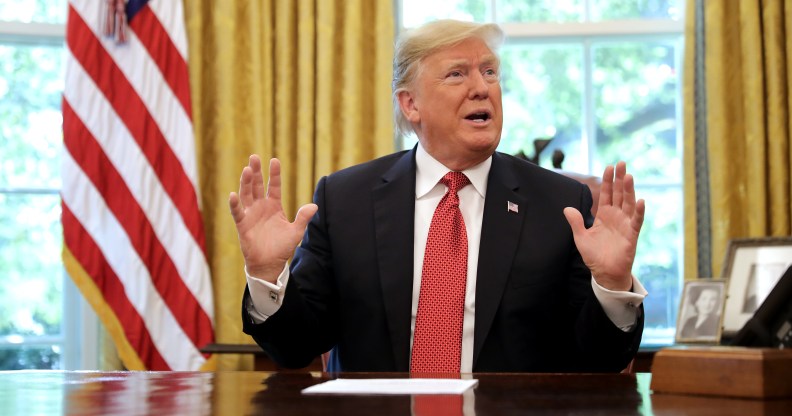
Trump voters think men are discriminated against more than most (Chip Somodevilla/Getty)
People who voted for Donald Trump in the 2016 presidential election think men face more discrimination than LGBT+ people.
Nearly one-in-five Trump voters (18 percent) say there is a great deal of discrimination towards men, compared to just nine percent who think queer people face discrimination.
The survey of 1,500 US adults, conducted from October 14-16 by The Economist and polling company YouGov, also showed more Trump fans think native-born Americans face serious discrimination than LGBT+ people.
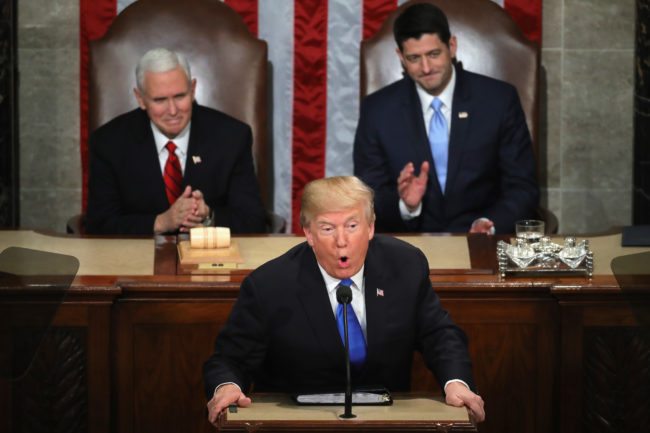
Trump with Vice President Mike Pence and House Speaker Paul Ryan (Chip Somodevilla/Getty)
According to 59 percent of the people who chose to elect the current president, queer people face not much discrimination or none at all.
They also think that men suffer more discrimination than women, Jews, Mexican Americans, African Americans, Asian Americans, Arab Americans and immigrants.
The gap between these voters and supporters of Trump’s presidential rival Hillary Clinton was huge, with the majority of Clinton voters (54 percent) believing LGBT+ people face serious discrimination.
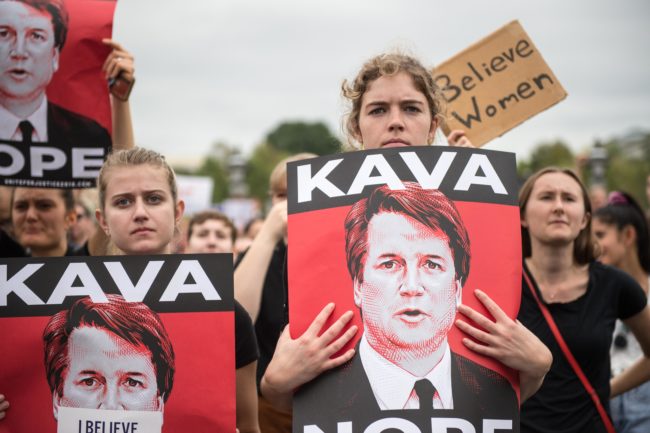
Brett Kavanaugh’s Supreme Court confirmation process has made women and some men feel discriminated against (ROBERTO SCHMIDT/AFP/Getty)
People who voted for Clinton also went the other way on whether men face serious discrimination, with just three percent of respondents saying they do.
And a mere eight percent of Clinton voters thought that queer people face not much or no discrimination at all.
In August, the Trump administration issued a directive giving federal contractors free range to discriminate against LGBT+ people.
There is no federal law banning discrimination based on sexual orientation or gender identity, but former President Barack Obama signed an executive order that required all federal contractors to abide by LGBT+ anti-discrimination principles.
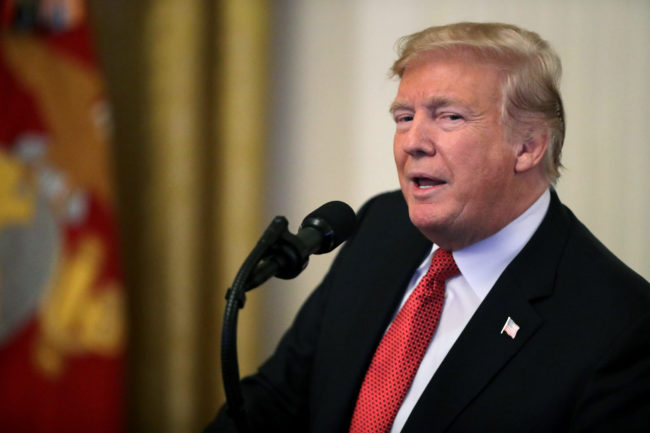
Trump’s administration has consistently targeted LGBT+ people (Chip Somodevilla/Getty)
However, Trump’s broad directive effectively gutted the power to sanction any federal contractor that discriminated based on their religious beliefs.
Earlier this month, Trump’s government announced that it would stop giving visas to unmarried same-sex partners of staffers working at the UN, World Bank and International Monetary Fund.
The policy, which rolled back the work of then-Secretary of State Clinton and LGBT+ rights champion UN Secretary-General Ban Ki-moon, could place many of these workers in danger.
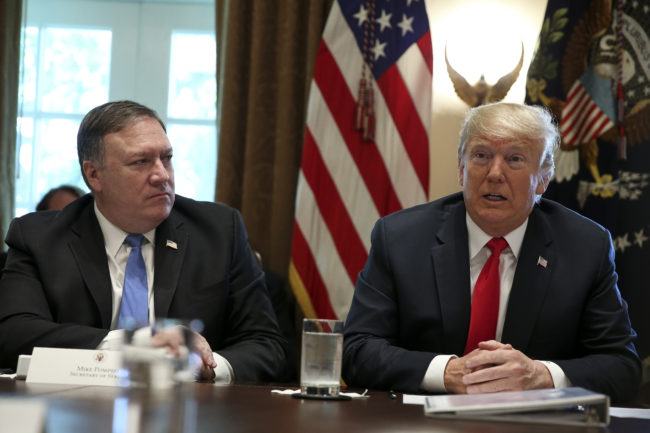
Trump’s government has stopped giving visas to unmarried same-sex partners of UN, World Bank and IMF employees (Oliver Contreras-Pool/Getty)
Out of the 193 member states of the UN, just 25 countries have legalised same-sex marriage. It’s illegal to be gay in around 69 countries, and several still have the death penalty.
That move was the latest in a long line of measures from Trump’s government designed to target LGBT+ people, coming just weeks after it was accused of transgender erasure after abruptly removing a page called “Gender Designation Change” from one of its sites.
In May, the administration reversed rules allowing trans prisoners to use facilities—including bathrooms and cell blocks—which match their gender identity, 15 months after rolling back the same policy for school students.

